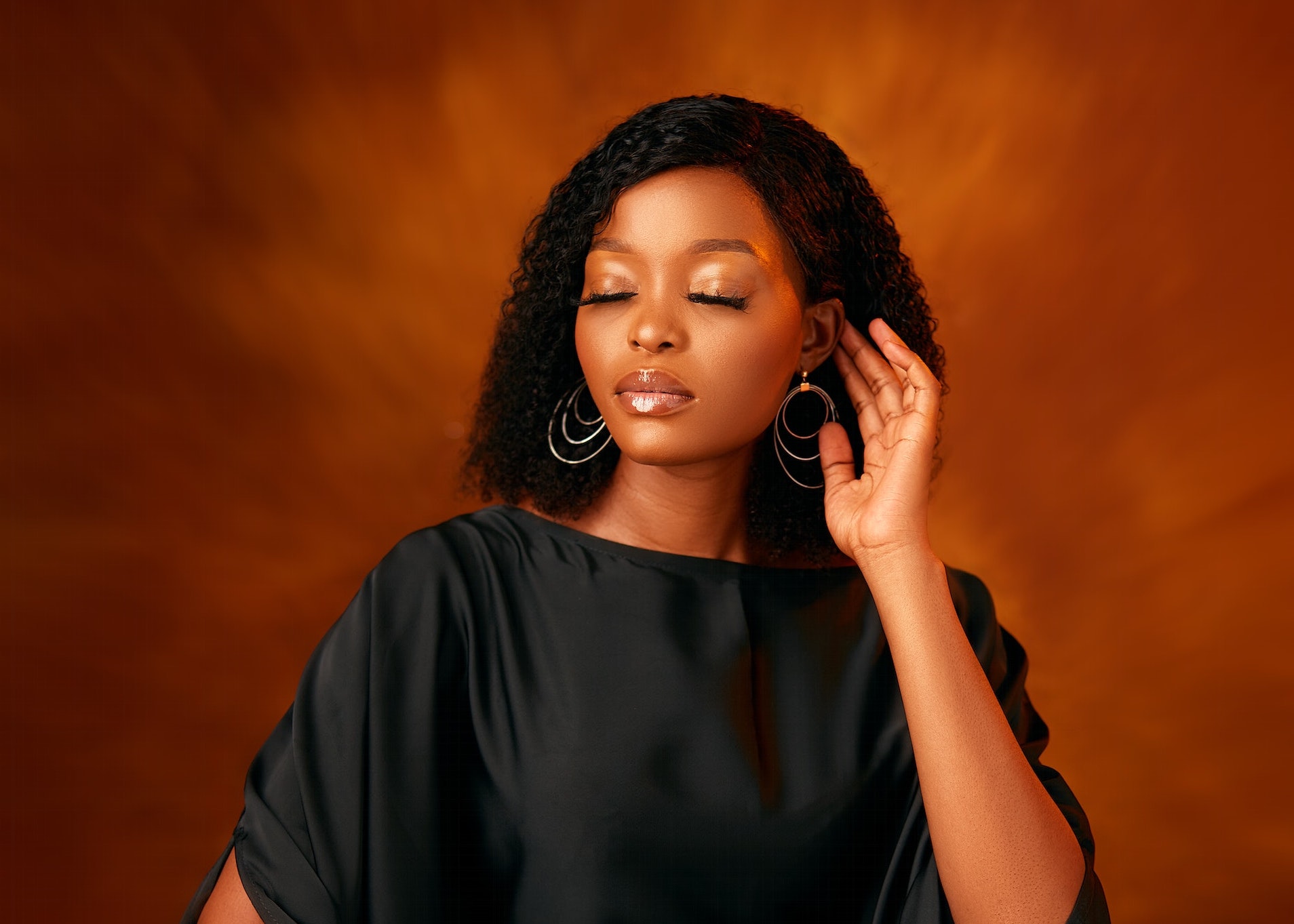TikTok is at it again. But this time, WOC are calling out Hailey Beiber for her ‘Brownie Glazed Lip Trend’ and the backlash is not pretty.
What is the ‘Brownie Glazed Lip Trend?
The ‘Brownie Glazed Lip Trend’ is a TikTok beauty trend made popular by Hailey Beiber. When the famous model debuted a stunning new pout she called “the lip combo vibe I’m feeling for fall”, social media went wild.
In the TikTok video, Beiber demonstrates how fans can achieve the look for themselves. She starts by lining her lips with the Scott Barnes Lip Liner in the shade “Naomi,” extending the liner a little past her cupid’s bow. Then, she smudges the product with her finger before finishing it off with her “Peptide Lip Treatment” for a glossy, dark brown pout.
Many fans immediately praised the trend, with some posting videos of themselves trying it out. But to some of her Black and Brown fans, the trend is nothing new. Instead, many are calling it appropriation.
But even though Hailey Beiber is the brains behind a number of popular TikTok trends, this isn’t the first time she’s in hot water for it.
Who is Hailey Beiber?
Hailey Beiber is an American model and social media influencer known for sparking a number of beauty and fashion trends on TikTok. For example, she recently debuted her crimped hair on social media, reintroducing the 80s trend with a single flat iron.
She started a skincare line called Rhode Skin, featuring her anticipated “Peptide Glazing Fluid” to provide fans with the “glazed donut aesthetic” that she also popularized on social media.
The Problem with the ‘Brownie Glazed Lip Trend’
Hailey Beiber is no stranger to creating a buzz on social media. But unfortunately, her newest lip trend is garnering the wrong kind of attention. Here’s why the Brownie Glazed Lip Trend is problematic:
Black and Brown Women Started the Trend
Respectfully, we’re tired of our culture being gentrified. We wanted to honor the WOC who have been rocking this lip combo since the 90’s. Here are the originators 💖 #brownieglazedlips pic.twitter.com/BYjCxmMWYc
— SLX marketplace (@shoplatinx) September 23, 2022
Even though the ‘Brownie Glazed Lip Trend’ is gaining steam on TikTok, it’s been the move in POC communities. In fact, the makeup trend started decades ago, with Black and Brown women sporting the look before it was ever a thing.
Back in the 90s, everyone was wearing clear gloss over lip liner, from Black video vixens to Bollywood film stars. But even though WOC started the trend, they aren’t receiving the recognition they deserve for their contributions to the beauty industry.
Instead, their ideas are stolen and credited to someone else, further erasing the marks they leave in the industry.
Appropriation Is Harmful
Respectfully, we’re tired of our culture being gentrified. We wanted to honor the WOC who have been rocking this lip combo since the 90’s. Here are the originators 💖 #brownieglazedlips pic.twitter.com/BYjCxmMWYc
— SLX marketplace (@shoplatinx) September 23, 2022
Fans are calling the ‘Brownie Glazed Lip’ appropriation due its rebranding as a hot, new trend that Hailey Beiber started.
Before the ‘Brownie Glazed Lip Trend,’ many WOC wore dark lip liner as part of their everyday style. But instead of being praised for it, they were called “ghetto” and other derogatory names.
Unfortunately, appropriation is pretty common. A lot of the trends you see on popular apps like TikTok were created by Black men and women who never receive the credit they deserve. As a result, Black content creators watch as their white counterparts receive the accololades, money, and opportunity that should’ve been rightfully theirs.
It’s Not the Only Problematic Trend
Ngl, it’s weird that Black makeup artists will wear brown lip liner and lip gloss and nobody cares, but when white makeup artists wear the same thing, suddenly it’s called “brownie-glazed lips” and it’s a new, massive, groundbreaking trend. It’s sus.
— Alpha Hannah 🖤🤍💜 (@AlphaHannah_) September 26, 2022
Hailey Beiber’s ‘Brownie Glazed Lip Trend’ is garnering quite a bit of backlash, but this isn’t the first time the “Glazed Donut Skin” influencer has been in hot water.
Recently, fans called out her “clean girl aesthetic” for being exclusionary, with some even calling it outright “anti-Black.” Even though the aesthetic is simple — minimal hair and makeup and neutral clothing colors — it featured young, thin white women as the face of the trend. Not to mention, highlighting white women as “clean” had many POC giving it the side-eye.
As a result, the aesthetic sparked a number of debates on social media.
Because Representation Matters
"Brownie glazed lips" IMMA NEED YOU TO BE FR https://t.co/P4zUtBLkWO pic.twitter.com/i8z64A2rZH
— Light ||𝑯𝑨𝑷𝑷𝒀 𝑪𝑬𝑹𝑻𝑰𝑭𝑬𝑫 𝑫𝑨𝒀|| (@jhopehamburger) September 24, 2022
According to a report from Statista, more than half of the U.S. population (58%) believes that the media reinforces negative stereotypes of minorities. But nearly a quarter of Americans (68%) report that creating diverse media representation is important.
But even though many agree that representation matters, it still doesn’t translate IRL. A study conducted by the Public Religion Research Institute found that three-quarters of white people don’t have non-white friends.
Fortunately, companies like Fenty Beauty are celebrating people from all backgrounds. And according to its nearly $3 billion net worth, it’s safe to say fans are loving the diversity, too.
